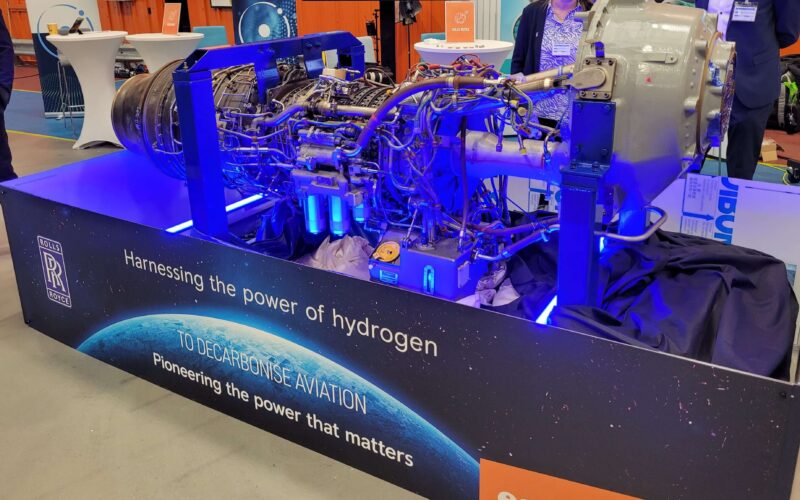easyJet unveiled a raft of measures and plans to reduce CO2 emissions to net zero and said the countdown was on for passengers to fly in hydrogen-powered aircraft.
“We believe that this is doable,” Johan Lundgren, CEO of easyJet, said of the airline’s plan at a press conference at London Luton Airport on September 26, 2022. “We recognise it is ambitious as well, but the whole point of this is to make sure that we can continue to deliver all the benefits that aviation gives for people, livelihoods, economies, societies. And, at the same time, make sure that we are also preserving the planet for generations to come.”
Lundgren also detailed easyJet’s work with partners on zero-emission technology, fleet renewal, operational improvements and efficiencies, airspace modernisation, sustainable aviation fuel (SAF) supply and carbon removal technology.
Notably, partner Rolls-Royce is moving closer to testing an engine for hydrogen propulsion.
Hydrogen technology progressing but not here yet
Speaking on plans for zero-emission technology, Grazia Vittadini, Chief Technology and Strategy Officer at Rolls-Royce, which announced a partnership with easyJet in July at the Farnborough International Airshow, said:
“I’m really delighted to say how fast we are progressing towards the very first hydrogen combustion ground test… The engine is there. The hydrogen has been delivered.”

A Rolls-Royce AE2100 engine on display at the media event, the sister of a test engine currently being used to test hydrogen propulsion
Lundgren also pointed to other partners developing hydrogen-powered technology, highlighting Airbus’s ambition to have a hydrogen-powered aircraft by 2035.
“We are starting the countdown. No pressure, by the way”, the CEO quipped.
SAF secured
The carrier also announced changes to reduce carbon emissions in the short and mid-term, including a fleet-wide roll-out of new Descent Profile Optimization and Continuous Descent Approach technology, decreasing CO2 emissions by 88,600 tons each year for the whole A320 family fleet.
Lundgren shared that the carrier had secured sufficient supply of SAF for the next five years, in line with EU mandates. He also highlighted the fuel’s role as a transitional means to reduce emissions while hydrogen propulsion remains in development.
“When you’re looking at long-haul aircraft, hydrogen seems to still be some time away. We’re going to need to have sufficient amounts of sustainable aviation fuel coming. But I think it is more the fact that we need to make sure that the supply also moves onto the next generation of sustainable aviation fuel… We should remember that sustainable aviation fuel, as it is today, still emits probably the same amount of CO2… but it’s actually Net Zero during its lifecycle of production”, Lundgren stated.
The end of offsetting
The executive went onto announce that the airline would end its current carbon off-setting program next year. All passenger tickets purchased after December 31st, 2022, will no longer include a contribution to carbon offsetting programmes.
“We said all along since we launched [the carbon offsetting programme] in 2019, that it was an interim measure, before we could move onto the technologies that we have described here today”, Lundgren pointed out.

